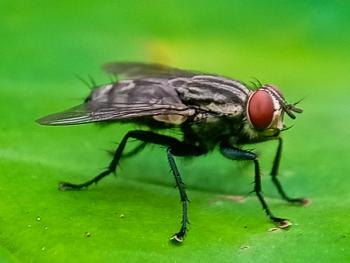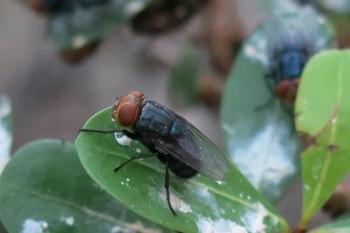
Editors' Guest: Why we gave fecal centrifugation a spin
A few years ago, our veterinarians and licensed veterinary technicians learned that centrifugation of fecal samples was the superior test for diagnosing gastrointestinal parasitism.
A few years ago, our veterinarians and licensed veterinary technicians learned that centrifugation of fecal samples was the superior test for diagnosing gastrointestinal parasitism. At that time, we were still using simple flotation—"the cup" with a sodium nitrate solution—to test our fecal samples.
After a lengthy discussion, we decided to run our own impromptu study. Our technicians went out back to our "fecal field" and collected a soufflé of dog stool. We mixed all the samples together and then used six separate methods of flotation to examine them: simple and centrifugal flotation with a sugar solution, a zinc sulfate solution, and a sodium nitrate solution.
Theresa Dennis, veterinary assistant, prepares a fecal sample for centrifugation at the Dickman Road Veterinary Clinic in Battle Creek, Mich.
About midafternoon, two of our licensed technicians, Toby Colyer and Peggy Heersema, reappeared with sheepish looks on their faces. "Boy, we've been doing this all wrong," they said. "The sugar centrifugation demonstrates 200% more parasite ova! We also have been finding more coccidia."
We then all debated why we had waited so long to make the change. We decided that the reason for our reluctance was that change is good but not always comfortable. Our technicians were remorseful when they realized they had been privy to this information for a while and had not done anything about it.
Well, we do it right now, and the number of fecal exams we perform (all by centrifugation) is up by more than 100% because our staff believes in fecal exams and recommends them frequently to clients. That's because the quality of our exams has improved dramatically. We see not only more ova but also more species of parasites—some we haven't seen since veterinary school.
We had been exposed to the same information everyone else had been exposed to. Fortunately, we made the change.
Interestingly, about 12 years ago, veterinarians recognized that the Knott's heartworm test was inferior to the newer high-tech occult heartworm test, and we all made the switch. This switchover, mind you, was for a nonzoonotic disease: heartworm infection. On the other hand, many of us have shunned centrifugation techniques on fecal samples—to test for zoonotic diseases—and have opted for the inferior test: simple flotation.
We implore our colleagues to use centrifugation—the superior test to diagnose a potential zoonotic disease. Make the change! Like us, you'll never look back.
Editors' note: For more information on switching to fecal centrifugation in your practice (including the cost of the equipment needed), see the article on why and how to perform fecal centrifugation in this issue.
Philip VanVranken, DVM
Philip VanVranken, DVM, is a Veterinary Medicine Practitioner Advisory Board Member from Dickman Road Veterinary Clinic in Battle Creek, Mich.
Newsletter
From exam room tips to practice management insights, get trusted veterinary news delivered straight to your inbox—subscribe to dvm360.





